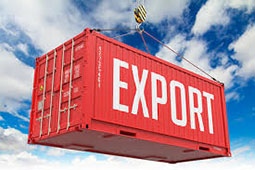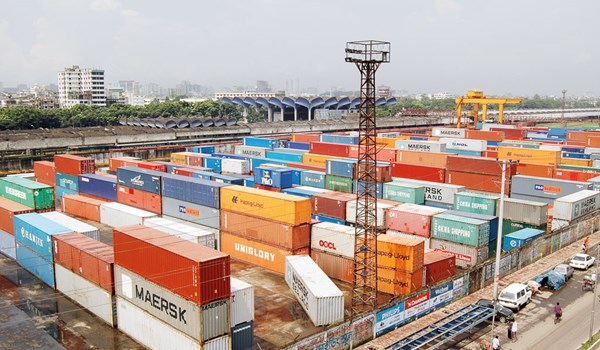
Iran’s Trade Revenues from Exports to Pakistan Increasing

Head of Chabahar’s Main Customs Office Majid Mazloumi said on Saturday that his office received revenues worth 712 billion rials (about $5.7 million) during the first 3 months of the current local calendar year, up 38% compared to the same period of last year.
He added that Iran exported some 43,500 tons of goods worth $40 million to Pakistan through Pishin border in the same period.
Mazloumi said the exports through the border crossing included bitumen, cement, ceramic and dairy products.
The border crossing, located in Pishin town, Sarbaz county od Sistan and Baluchistan province, was launched in 2017, in a bid to boost trade between Iran and Pakistan.
Pakistan was Iran’s eighth export destination then.
According to Mazloomi, "During the last three months, 360,000 tons of goods worth $388 million have been imported through the Chabahar customs and the Free Trade Zone.”
He noted that imported products increased by 103% in terms of weight and by 90% in terms of value.
Rice, corn, sugar, animals and car spare parts were mainly imported through the Sistan and Baluchistan borders during the period, he added.
On Thursday, Pakistan’s Adviser to Prime Minister on Commerce, Textile, Industries and Production Abdul Razak Dawood, in a meeting with a delegation of Pakistan's Rice Exporters Association, urged his country's rice exporters to benefit from Iran’s market.
During the meeting, Dawood vowed to increase rice exports from the current $2 billion to $5 billion in upcoming five years.
Last week, Iran’s Minister of Industry, Mining and Trade Reza Rahmani during his visit to Pakistan expressed keen interest in importing 500,000 tons of rice from Pakistan.
The minister also led the Iranian delegation at 8th Joint Trade Committee (JTC) two-day meeting in Islamabad.
The two countries had also signed a memorandum of understanding (MoU) to promote bilateral trade and investment between the two countries.
On Saturday, Rahmani said, after his visit to Pakistan, that Islamabad is enthusiastic about developing economic, bilateral, and commercial ties with Tehran.
Last month, Dawood said that his country is willing to enhance trade and economic cooperation with Iran, despite the United States' unilateral sanctions.



Trump weighs using $2 billion in CHIPS Act funding for critical minerals

Codelco cuts 2025 copper forecast after El Teniente mine collapse

Electra converts debt, launches $30M raise to jumpstart stalled cobalt refinery

Barrick’s Reko Diq in line for $410M ADB backing

Abcourt readies Sleeping Giant mill to pour first gold since 2014

Nevada army depot to serve as base for first US strategic minerals stockpile

SQM boosts lithium supply plans as prices flick higher

Viridis unveils 200Mt initial reserve for Brazil rare earth project

Tailings could meet much of US critical mineral demand – study

Kyrgyzstan kicks off underground gold mining at Kumtor

Kyrgyzstan kicks off underground gold mining at Kumtor

KoBold Metals granted lithium exploration rights in Congo

Freeport Indonesia to wrap up Gresik plant repairs by early September

Energy Fuels soars on Vulcan Elements partnership

Northern Dynasty sticks to proposal in battle to lift Pebble mine veto

Giustra-backed mining firm teams up with informal miners in Colombia

Critical Metals signs agreement to supply rare earth to US government-funded facility

China extends rare earth controls to imported material

Galan Lithium proceeds with $13M financing for Argentina project

Kyrgyzstan kicks off underground gold mining at Kumtor

Freeport Indonesia to wrap up Gresik plant repairs by early September

Energy Fuels soars on Vulcan Elements partnership

Northern Dynasty sticks to proposal in battle to lift Pebble mine veto

Giustra-backed mining firm teams up with informal miners in Colombia

Critical Metals signs agreement to supply rare earth to US government-funded facility

China extends rare earth controls to imported material

Galan Lithium proceeds with $13M financing for Argentina project

Silver price touches $39 as market weighs rate cut outlook

















